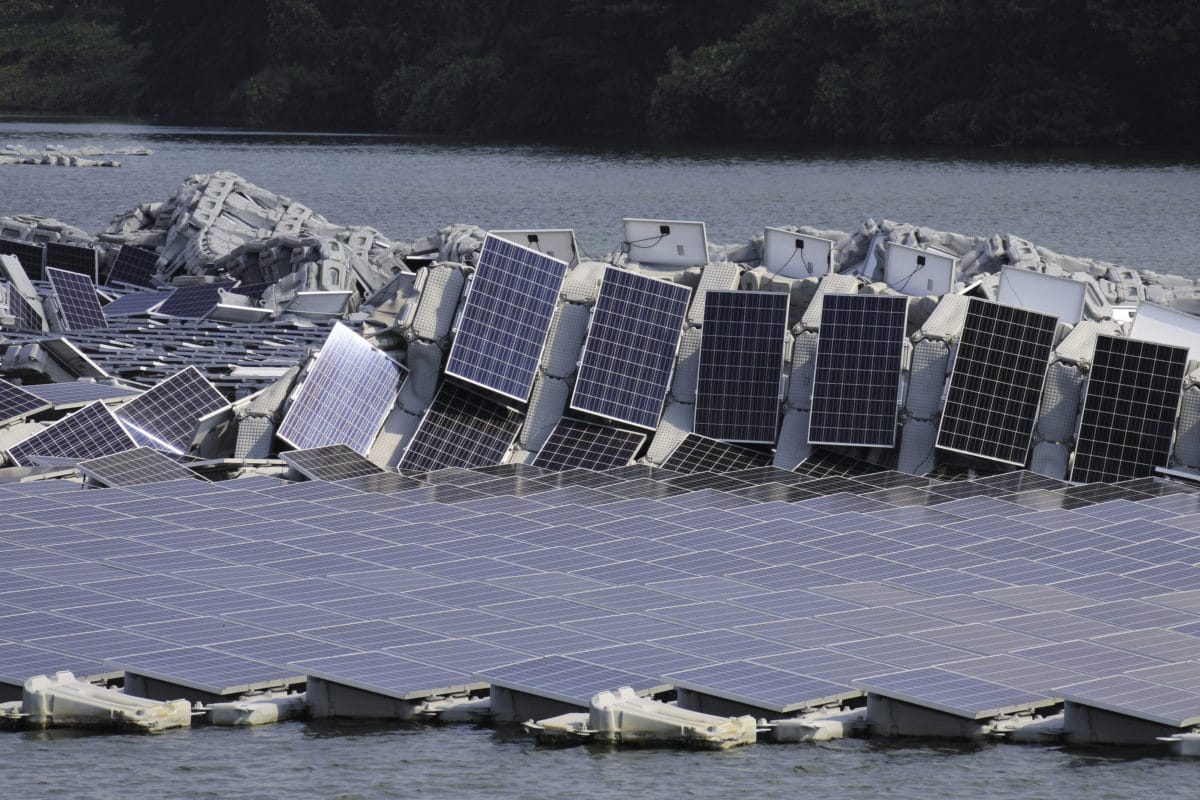Climate change impacts the technical, operational, and financial design of a project. However, a study by World Resources Institute finds decentralized solar installations in India’s energy-poor states lacked design for climate resilience.
The researchers analyzed 14 decentralized solar energy systems (standalone or minigrid-sized installations) installed in community-level healthcare, education, and livelihood facilities in climate-vulnerable regions across three states (Assam, Jharkhand, and Rajasthan) of India. The primary climate risks in these states were listed as floods, waterlogging and extreme precipitation in Assam, thunderstorms in Jharkhand, and extreme heat and water scarcity in Rajasthan.
The researchers said that none of the decentralized solar installations covered in the case studies specifically incorporated predictions of future climate change into their project design. Climate considerations were even less evident in the operational and financial design.
The researchers found that only a limited number of case study installations had operational clarity on roles and responsibilities during and after a climate-related event or have funding arrangements to deal with the aftermath of an event. Furthermore, the clarity that some possess stemmed from learning through experience and not from the project design.
The researchers acknowledged that many renewable energy projects adapted their designs considering specific local conditions. These considerations, however, didn’t suffice to manage climate-related risks over the project lifecycle. For example, in Assam, to deal with waterlogging and flooding, installations are designed to withstand higher water levels, either through raised platforms or through technologies such as floating solar installations. Jharkhand is prone to thunderstorms and lightning, and a few pilot implantation projects in the state have installed lightning rods, surge protectors, and chemical earthing. In the desert state of Rajasthan, the installations are designed to withstand extreme temperatures and strong winds and include insurance of structures in project design.
Recommendations
The researchers identified additional considerations for decentralized solar energy installations in climate vulnerable regions as the study outcome.
Technical considerations include understanding the current and future climate risks in the region, how they affect the demand for and supply of electricity, and what technology options, codes, and guidelines exist to ensure that the energy system remains useful and functional. The implementing agencies and vendors should also consider whether project timelines include climate risks through the four stages of the project life cycle and whether the technical design considers the market availability of spare parts if disruptions occur.
Organizational considerations include whether the contractual and non-contractual responsibilities of all participants are laid out in the event of climate-related disruptions and whether they have adequate capacity to execute them. Users and implementing agencies should account for local capacity building, contingency communication, or response plans under contractual obligations that can be activated during climate-related events. Energy project planning should consider the local community’s expectations, including the role played by energy in the community’s current and future coping mechanisms to manage climate-related risks.
Economic considerations include a realistic estimate of whether finance for the project incorporates climate resilience as a critical element of project planning. Funding agencies, implementing agencies, and users should collaborate on project planning that is flexible enough to integrate innovative financing options to hedge against short- and long-term uncertainty.
This content is protected by copyright and may not be reused. If you want to cooperate with us and would like to reuse some of our content, please contact: editors@pv-magazine.com.









1 comment
By submitting this form you agree to pv magazine using your data for the purposes of publishing your comment.
Your personal data will only be disclosed or otherwise transmitted to third parties for the purposes of spam filtering or if this is necessary for technical maintenance of the website. Any other transfer to third parties will not take place unless this is justified on the basis of applicable data protection regulations or if pv magazine is legally obliged to do so.
You may revoke this consent at any time with effect for the future, in which case your personal data will be deleted immediately. Otherwise, your data will be deleted if pv magazine has processed your request or the purpose of data storage is fulfilled.
Further information on data privacy can be found in our Data Protection Policy.